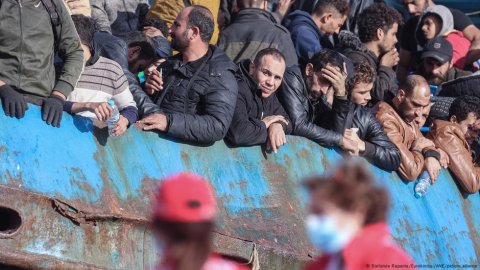Crisis in German-Greek Relations Over Refugee Policy
The ongoing challenge of managing refugee policies is causing significant tensions between Germany and Greece. This situation highlights the complexities surrounding immigration and humanitarian assistance in the European Union, as well as the implications of national policies on international relations.
Background of the Crisis
Germany, known for its relatively welcoming stance towards refugees, is increasingly facing pressure to tighten its immigration policies. In contrast, Greece has been on the frontline of the refugee crisis, particularly due to its geographical proximity to conflict zones. The influx of refugees has strained Greece’s resources, leading to calls for more robust support from other EU member states.
The current situation has escalated due to several factors:
- Increased Refugee Arrivals: The rise in the number of refugees arriving in Greece is overwhelming its existing infrastructure and resources.
- Policy Disagreements: Germany’s push for a more stringent immigration approach contrasts sharply with Greece’s urgent need for humanitarian assistance.
- Political Pressure: Both nations are dealing with political pressures that complicate their ability to find common ground on immigration policies.
Germany’s Shift in Immigration Policy
Germany has been known for its progressive immigration policies, particularly in response to the Syrian Refugee Crisis. However, recent developments suggest a shift towards a more conservative approach. The government is grappling with the implications of its immigration policies, focusing on the needs of its citizens while balancing humanitarian obligations.
Key aspects of Germany’s recent immigration policy changes include:
- Increased scrutiny of asylum applications.
- Stricter border controls.
- Implementation of additional resources for integration and support of refugees already in the country.
These changes reflect a growing concern about the impact of immigration on social cohesion and public resources, which resonates with the sentiments of many Germans.
Greece’s Humanitarian Challenges
On the other hand, Greece faces a dire humanitarian situation. As one of the primary entry points for refugees entering Europe, the country bears a significant burden. The lack of adequate facilities and resources to support incoming refugees has led to a humanitarian crisis, with many people living in substandard conditions.
Greece’s challenges include:
- Overcrowded Camps: Many refugee camps are overpopulated, leading to unsanitary conditions and limited access to essential services.
- Limited Support from the EU: Despite being on the frontline, Greece often feels abandoned by other EU countries when it comes to sharing the responsibility of accommodating refugees.
- Political Instability: Ongoing political debates about immigration policy create uncertainty and hinder effective solutions.
The Role of the EU in Mediating the Crisis
The European Union plays a crucial role in mediating disputes related to refugee policies among member states. Initiatives aimed at redistributing asylum seekers across Europe have met with resistance from several countries, leading to tensions among EU members.
Potential EU responses to the crisis may include:
- Introducing a more equitable distribution system for refugees across member states.
- Increasing funding for humanitarian assistance in Greece.
- Implementing joint border security measures to manage influxes more effectively.
However, these solutions require consensus among member states, often a challenging endeavor given the varying national interests regarding immigration.
Implications for Future Relations
The current crisis in German-Greek relations over refugee policy could have long-lasting implications for both nations and the stability of the EU. As Germany reassesses its immigration framework, it is essential for Greece to receive adequate support to address its immediate humanitarian needs.
Key considerations for the future include:
- How to balance national interests with humanitarian responsibilities in the context of EU membership.
- Whether Germany will continue to be a leader in progressive immigration policies or revert to a more nationalistic approach.
- The necessity for Greece to advocate for more substantial support from other EU nations to address the refugee crisis.
The crisis showcases the delicate balance that must be maintained between national immigration policies and the shared responsibility of EU member states to provide humanitarian aid. As discussions continue, the hope remains that a cooperative approach can be reached, ensuring both nations can address their respective challenges while upholding humanitarian values.
Conclusion
The unfolding crisis in German-Greek relations over refugee policy is a reflection of broader issues faced by Europe regarding immigration and humanitarian support. As both nations navigate their political landscapes, finding common ground will be essential in fostering a collaborative approach to refugee management.
This situation serves as a reminder of the importance of solidarity among nations in addressing global humanitarian challenges and the need for innovative solutions to ensure that the rights and dignity of refugees are upheld.










